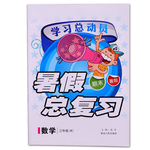题目内容
Liam works in Sydney. Last week he had 1holiday, but he didn’t know 2to go. He said to his friend Robert, “I 3 the hot weather here, but I can’t find a cool place in Australia. How will I spend my holiday?”
“That. ’s 4” said Robert. “You’d better go to Moscow. It’s 5 there because it is covered with snow and ice now.”
Liam 6with his friend. He bought an air ticket and soon 7Moscow. He made a8 journey there. But one day he got into trouble. After lunch he went outside the city. He saw a dog 9him while he 10by a house. It was 11and wanted to get some food to eat. Bad luck! He had no pieces of bread or cake with him. He tried to send it away. But it began to shout at him. He wanted to 12 something to make the dog go away, but he couldn’t find anything13 snow and ice. Suddenly he saw a stone(石头) on the ground. He tried to14but he failed.
“ How strange the Russians are!” Liam said to himself. “They do not tie(拴)their dogs, but firmly(紧紧地)tie the 15.
- 1.
- A.two-week
- B.two weeks
- C.two weeks’
- D.a two-week
- A.
- 2.
- A.how
- B.what
- C.where
- D.if
- A.
- 3.
- A.like
- B.unlike
- C.hate
- D.not like
- A.
- 4.
- A.right
- B.easy
- C.exciting
- D.interesting
- A.
- 5.
- A.hot
- B.cold
- C.warm
- D.humid
- A.
- 6.
- A.agreed
- B.disagreed
- C.liked
- D.hated
- A.
- 7.
- A.arrived in
- B.got
- C.left
- D.returned
- A.
- 8.
- A.sad
- B.happy
- C.tired
- D.boring
- A.
- 9.
- A.to follow
- B.is following
- C.following
- D.followed
- A.
- 10.
- A.was walking
- B.walked
- C.was crossing
- D.crossed
- A.
- 11.
- A.full
- B.thirsty
- C.happy
- D.hungry
- A.
- 12.
- A.have
- B.discover
- C.look for
- D.look out
- A.
- 13.
- A.besides
- B.except
- C.beside
- D.without
- A.
- 14.
- A.look for it
- B.put it up
- C.throw it away
- D.pick it up
- A.
- 15.
- A.dogs
- B.stones
- C.food
- D.sticks
- A.
本文主要讲的是:在悉尼工作的Liam想要找一个凉爽的地方度假,在朋友的推荐下去了俄罗斯,并且在那遇上了麻烦的事。
1考查前置定语。在名词与基数词合成的前置定语中,不管基数词是否大于1,其中的名词都用单数,并且连字符“-”不能省略,所以应表示为two-week。因此表示“一个双周的假期”用a two-week holiday。
〖同步练习〗My friend Conan will spend ________vacation in London.
A.a four-month B.a four month C.a four months D.a four-months (答案:A)
2考查复合结构。在由疑问副词+to do sth.(动词不定式)构成的一类复合结构中,动词不定式中的动词应与疑问副词相对应,此处的go与where相对应,所以选择where。
〖同步练习〗Excuse me,could you please tell me _____to get to the market?
A.where B.how C.what D.which (答案:B)
3考查词义的辨析。从下文Liam所说的“I can’t find a cool place in Australia.”以及他去了莫斯科,可知他讨厌炎热的天气,因而用hate,意为“讨厌,憎恶”,其它的单词:like意为“喜欢”;unlike意为“与…不像,与…不同”,是介词;not like是动词否定式的错误表达。
4考查语义辨析。That’s easy意为“那简单,那容易”,根据后文朋友Robert给Liam推荐去莫斯科,可以得出该答案。
〖同步练习〗Miss Lee,could you teach me how to solve my fear?
---____ ,just have a try.
A.Behave yourself B.Never again C.That’s easy D.That’s true (答案:C)
5考查语境意识。根据后面it is covered with snow and ice now.因为有雪又有冰,所以是寒冷的,选择cold。
6考查动词短语搭配。根据后一句Liam买了去莫斯科的票,可知他同意了朋友的建议,agree with为固定搭配,意为“同意…的观点、看法”。
〖同步练习〗After a few hours,everyone____Jim,who first came up with the new idea.
A.agree B.agree with C.agree on D.agree to (答案:B)
7考查动词及动词词组的语义。结合上下文,可知此处表示的是“到了莫斯科”,arrive in意为“到达(某地)”。
〖同步练习〗Hello Eric,I have just ___Tianjin.
----Hello Marry,have a happy holiday.
A.arrived B.arrived in C.arrived on D.come (答案:B)
8考查形容词辨析。应该结合后一句But one day he got into trouble判断,but表示前后句存在转折关系,因此此处选择happy,因为它与got into trouble相对。
9考查动词see的用法。See sb. do sth.表示“看到某人做某事”,强调的是看到了全过程;see sb. doing sth.表示“看到某人正在做某事”,强调的是“正在”。此处表示“看到一只狗正在跟着自己”,选择following。
10考查动词词组与时态。连词while表示“当…的时候”,后面使用动词的ing形式。Walk by意为“经过,走过去”。
〖同步练习〗While ____ the park,Tom came across an old friend.
A.walking B.walks by C.walking on D.walking by (答案:D)
11考查形容词辨析。根据后句(it)wanted to get some food to eat可判断此处表示狗很饥饿。Hungry意为“饥饿的”,与语义相符。Full意为“满的”, thirsty意为“口渴的”,happy意为“快乐的”,三者均与语义不相符。
12考查动词及动词词组的辨析。Liam想要使狗离开,当然是要寻找某些东西来驱赶它。Look for意为“寻找…”。Look out可意为“当心”。
〖同步练习〗What are you doing there?
----I am ____ my watch.
A.find B.seaching C.looking for D.looking out (答案:C)
13考查介词辨析。此处表示“除了雪和冰以外,什么也没有”,except表示“除了…外,什么也没有”;besides表示“除了…外,还有”;without意为“无,没有”。
〖同步练习〗Everyone plays on the playground____Kid.
----Yeah,he is the only person who is studying while others are playing.
A.except B.besides C.besibe D.include (答案:A)
14考查短语辨析。Pick it up意为“捡起它”;结合语境,此处表示Liam试图捡起石头。
15考查名词辨析。应结合语境判断。Liam试图捡起石头,但捡不起来,可知此处表示的是牢牢拴着的是石头。
点评:这篇完形填空题涉及到初中英语动词及动词词组、形容词辨析、时态、复合结构等诸多方面的内容,有一定的综合性。对于巩固英语基础知识有很大的好处。因此,同学们应当在基础方面多注意积累。

 学期复习一本通学习总动员期末加暑假延边人民出版社系列答案
学期复习一本通学习总动员期末加暑假延边人民出版社系列答案 芒果教辅暑假天地重庆出版社系列答案
芒果教辅暑假天地重庆出版社系列答案“That. ’s 44 ,” said Robert. “You’d better go to Moscow. It’s 45 there because it is covered with snow and ice now.”
Liam 46 with his friend. He bought an air ticket and soon 47 Moscow. He made a 48 journey there. But one day he got into trouble. After lunch he went outside the city. He saw a dog 49 him while he 50 by a house. It was 51 and wanted to get some food to eat. Bad luck! He had no pieces of bread or cake with him. He tried to send it away. But it began to shout at him. He wanted to 52 something to make the dog go away, but he couldn’t find anything 53 snow and ice. Suddenly he saw a stone(石头) on the ground. He tried to 54 but he failed.
“ How strange the Russians are!” Liam said to himself. “They do not tie(拴)their dogs, but firmly(紧紧地)tie the 55 ”.
| 【小题1】 |
|
| 【小题2】 |
|
| 【小题3】 |
|
| 【小题4】 |
|
| 【小题5】 |
|
| 【小题6】 |
|
| 【小题7】 |
|
| 【小题8】 |
|
| 【小题9】 |
|
| 【小题10】 |
|
| 【小题11】 |
|
| 【小题12】 |
|
| 【小题13】 |
|
| 【小题14】 |
|
| 【小题15】 |
|
Liam works in Sydney. Last week he had 41 holiday, but he didn’t know 42 to go. He said to his friend Robert, “I 43 the hot weather here, but I can’t find a cool place in Australia. How will I spend my holiday?”
“That. ’s 44 ,” said Robert. “You’d better go to Moscow. It’s 45 there because it is covered with snow and ice now.”
Liam 46 with his friend. He bought an air ticket and soon 47 Moscow. He made a 48 journey there. But one day he got into trouble. After lunch he went outside the city. He saw a dog 49 him while he 50 by a house. It was 51 and wanted to get some food to eat. Bad luck! He had no pieces of bread or cake with him. He tried to send it away. But it began to shout at him. He wanted to 52 something to make the dog go away, but he couldn’t find anything 53 snow and ice. Suddenly he saw a stone(石头) on the ground. He tried to 54 but he failed.
“ How strange the Russians are!” Liam said to himself. “They do not tie(拴)their dogs, but firmly(紧紧地)tie the 55 ”.
| 【小题1】 |
|
| 【小题2】 |
|
| 【小题3】 |
|
| 【小题4】 |
|
| 【小题5】 |
|
| 【小题6】 |
|
| 【小题7】 |
|
| 【小题8】 |
|
| 【小题9】 |
|
| 【小题10】 |
|
| 【小题11】 |
|
| 【小题12】 |
|
| 【小题13】 |
|
| 【小题14】 |
|
| 【小题15】 |
|